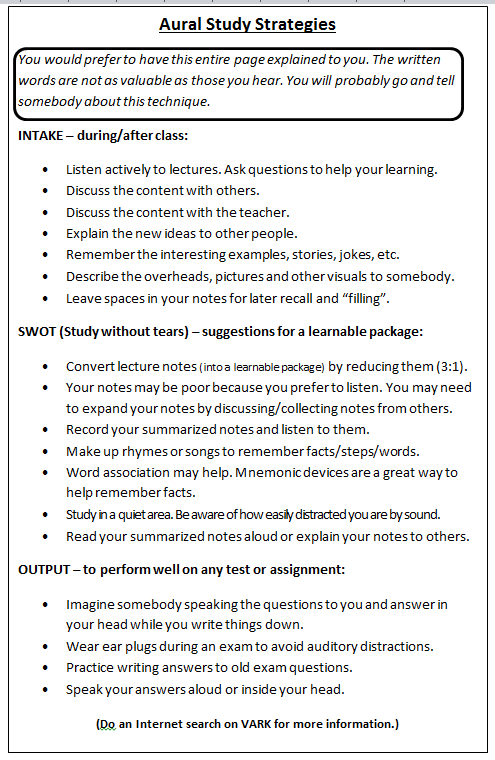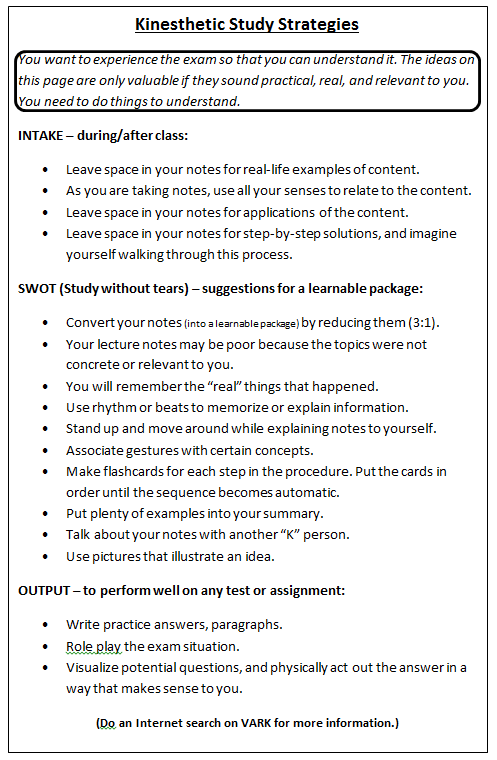I recently attended a CS workshop for teachers, and if you live in TX, I highly recommend it for next summer. We learned a variety of things, and though some topics were not immediately adaptable to taking back to the classroom, they still were fascinating things you could mention to your students or adapt in some way to your population. Example, did you know that your brain doesn't have to process how to walk (for the most part), the mechanics of the motion are stored in your spinal cord.
One of the talks was on effective teaching, and the presenter mentioned VARK, which I had never heard of. This stands for visual/aural/read-write/kinesthetic, and, of course, refers to learning styles. What I found useful in the talk was actual suggestions on how students could study for and take exams more effectively than they may be doing currently. The hand out was not in a form I would hand out, so I made my own version on half pages for the students to tape in their composition notebooks on the first day of class for future reference. I culled from the VARK website and others that offered tangible ideas.
Online they have a questionnaire for the kids to take to determine which type they are (yay, first night's homework!). I like that you can choose more than one answer for each question and that you could be a "multi-modal" learner. There are different versions of the questionnaire for adults and such (do a search on VARK).
I want the students to tape in ALL four styles into their notebooks because they may find helpful ideas from a mix of strategies.




Great resource- thanks for sharing!
ReplyDeleteThanks Elissa. Hopefully it will spark new ways of studying for students.
ReplyDeleteWell you have shared really useful source, I like to add one more point that the student attends class regularly, you might ask the following: Do you take good notes? Do you review your notes after class to correct obvious errors? Do you compare your notes with those of other students? Where do you sit in the classroom? You may also want to look at the quality of the student’s notes and suggest changes (e.g., leaving more space, use of topic headings, writing down of examples used by the instructor).
ReplyDeleteFree Online 6th Grade Math Practice
Thanks for the good ideas, Lisa. I think we maybe all assume students know how to take good notes, but they most likely don't unless it's been discussed with them.
ReplyDeleteThanks for all the ideas! I have parents ask often for strategies on how their child can study! :)
ReplyDeleteWoot! Glad it's useful to someone :).
DeleteThanks! These look like an excellent resource. Lisa's ideas for examining the student's note taking also sounds like a really helpful next step.
ReplyDelete